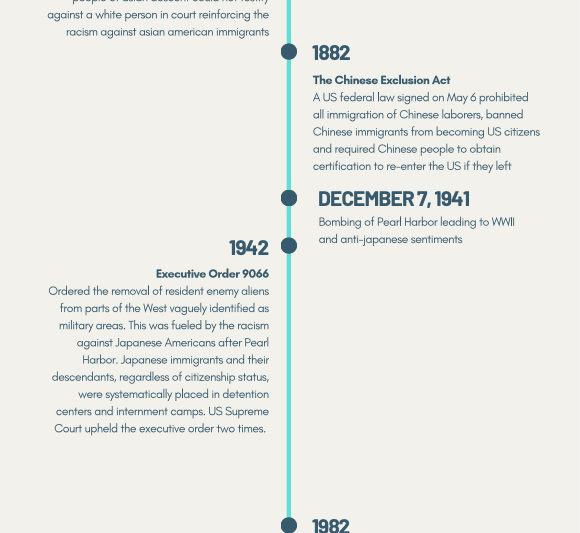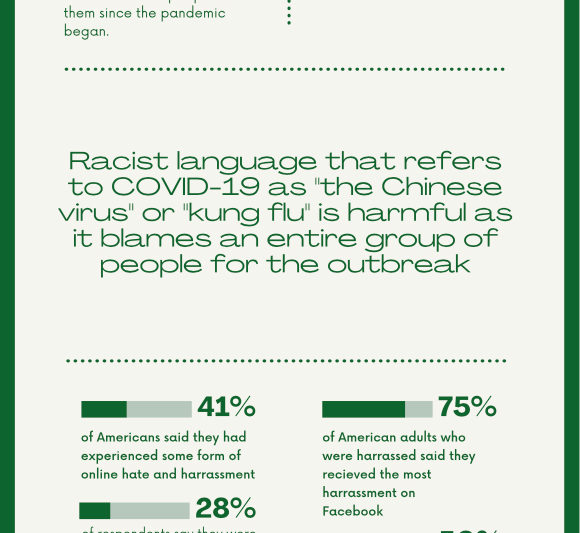COVID-19 racial retribution impacts UT’s Asian community
By Alyssa Weinstein
Reporting Texas
When the Atlanta spa shootings happened last month, one of the first things Winston Hung did was call his Taiwanese parents. As his parents’ concern for their son studying at the University of Texas at Austin heightened, his father gave him a warning of caution.
“Be careful, you never know what’s going to happen.”
In respect to campus, Winston Hung, a senior and student body vice president was grateful to not personally experience any overt acts of anti-Asian American discrimination. However, shortly after the global pandemic struck, Hung noticed a shift in how people saw him in public.
Most significantly, Hung remembers the time last year when the pandemic hit Austin and people would “not actively” steer their grocery carts away from him to avoid getting sick as if he were contagious, he said.
“The virus did originate in China and I think some people definitely wanted to blame someone for the pandemic, and that was an easy way to do it,” Hung said.
At UT Austin’s main campus, there were no reportable hate crimes in 2016 and 2018 according to the last completed annual Security and Fire Safety Report done by UT Austin in 2019. However, there was one unspecified case of simple assault on public property with a racial bias, the report stated. The report for 2020 has yet to be released.
According to a report conducted Stop AAPI Hate, new data has uncovered a rise in hate incidents aimed at Asian Americans and Pacific Islanders with a disproportionate impact on Asian women. In total, the article states there have been about 3,800 reported incidents in the past year during the pandemic.
This new number is noticeably higher than last year’s count of around 2,600 hate incidents in the U.S. over the period of five months, the AAPI report said.
Reporting Texas spoke to another Asian American student attending classes at UT in her third year, who asked that she remain anonymous for this story. Doing so, she said recent attacks aimed at Asians has taken a significant toll on her emotional well-being.

“I’m usually not like someone who gets really affected by news, but it really did affect me and then sometimes I did tear up,” she said. She added that he cannot imagine the difficulties Asian face in U.S. cities in places like California and New York where reports of hate are much higher.
Even though she hasn’t experienced bold acts of Asian racism like what has been portrayed in the media, she says she has experienced microaggressions.
A common example, she says is people asking, “Where are you from?” And then they persist with the question after responding she’s originally from Dallas. She said this was a common form of discrimination reported by her fellow Asian students at UT.
Regarding what it’s like to be a young, Korean woman during this time, the student said people are failing to realize how capable Asian women are, regardless of cultural stereotypes.
“The way media portrays Asian women as very dainty-like and very weak, and sometimes very lady like … and especially sexualized … but I refuse to be put in a box,” she said. “I want the UT Austin community to know that Asian women are pretty strong, and we are just as capable as men.”
Hung said this past year has been about reflection and thinking a lot about what it means to be an Asian in this post-pandemic world where many people blame China for the outbreak of COVID-19. At the same time, he has experienced what he called “heartwarming” support from most of the UT community.
“Not only are the Asian communities reflecting on what’s been happening, but they have been able to speak about it,” Hung said. “We’ve been able to call in a lot of Asian majority organization and use our platform as student government to elevate their priorities.”
Hung said the university has taken some good steps in response to the spike of racism targeting Asians. These steps have included the university releasing a statement standing against the racism, sharing resources and holding town halls and workshops to combat violence aimed at Asians. Though Hung acknowledges more work needs to be done – especially toward the university providing sustainable therapy and mental health resources for its Asian and Pacific Islander students.
The university’s Counseling and Mental Health Center is moving in the right direction in terms of having counselors of diversity, Hung said. But he stressed students still need a more resources that resonate with their experiences.
“We need to make sure that if a student needs care on campus, they can get it, period,” Hung said.
Hung said other ways the UT community in general can best be assisted during this time is by donating to organizations that help advance anti-Asian and Pacific Islander racism causes and by promoting education to hopefully remove and prevent bias and violence.
“At the end of the day, I think [these issues] are part of the greater fight in a creative journey of always speaking up, and I think that has kind of been the essence of this whole thing,” Hung said.
“Not every issue affects everyone equally. But that doesn’t mean that you should sit by and watch it happen.”